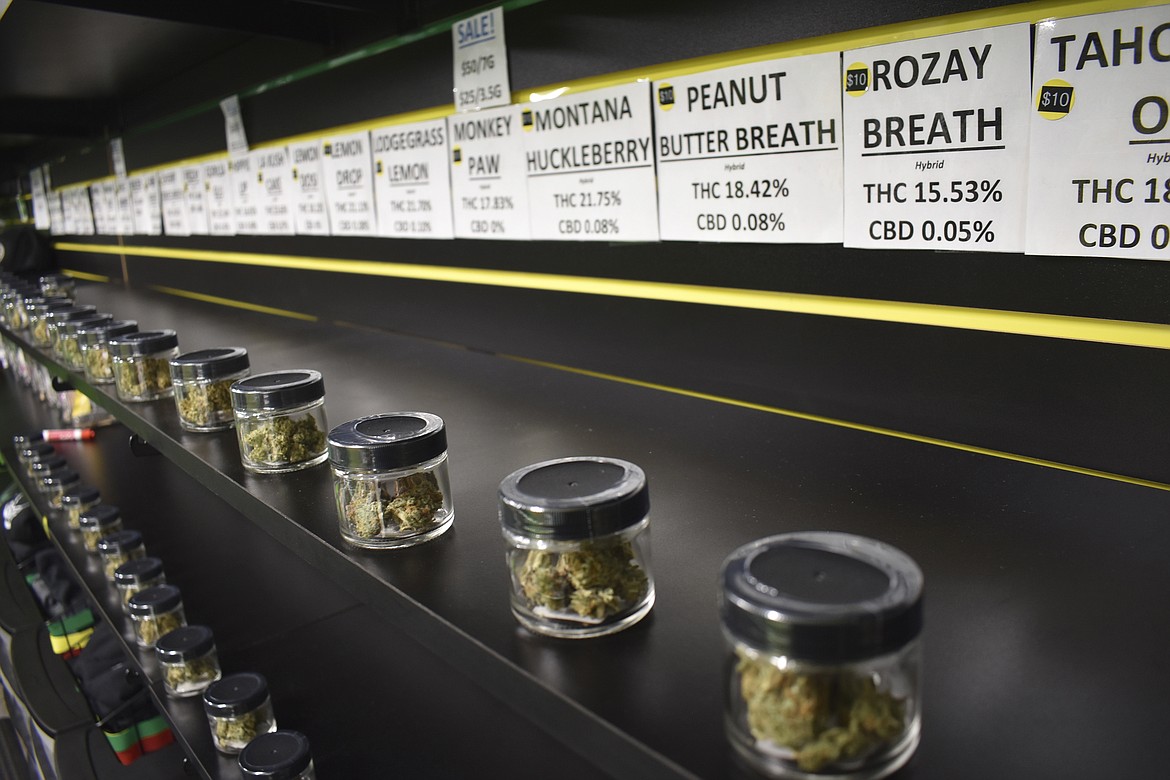Montana marijuana legalization bill passes in Senate
HELENA, Mont. (AP) — The Montana Senate on Friday passed a bill to implement a recreational marijuana program in the state, which would reserve tax revenue from sales for addiction treatment and statewide conservation efforts.
Voters approved a ballot measure last year to legalize recreational marijuana sales. The ballot measure also sought to divert a significant portion of tax revenue toward conservation efforts.
The bill passed out of the House earlier this month along party lines, with House Democrats united in their opposition to the measure, which did not follow the voter-approved revenue plan. But a Senate committee amended the bill to track more closely to what is included in the ballot measure, earning the support of most Senate Democrats.
The bill passed the Senate with a 34-16 vote. It next heads back to the House, which will vote on the Senate amendments.
As outlined in the bill, recreational marijuana sales would be taxed at a rate of 20 percent. Of the state revenue generated by sales, $6 million annually would go towards a drug addiction treatment program backed by Gov. Greg Gianforte; 20 percent would go toward conservation efforts; 4 percent or up to $650,000 each would go to state parks, trails and recreational facilities, and wildlife protection; up to $200,000 would go to veterans services and improving veterans' cemeteries; $300,000 would go toward a one-time purchase of drug detection canines; $150,000 would fund a one-time police training; and the remaining money would enter the state's general fund.
Tax revenue from marijuana sales is estimated to be more than $48 million annually by 2025.
The original ballot measure directed 10.5 percent of revenue towards the state general fund, with the rest for conservation programs, substance abuse treatment, veterans' services, health care costs and localities where marijuana is sold.
Under the plan, in counties that voted in favor of the ballot measure, recreational marijuana sales would be automatically legalized. But in counties where the ballot measure did not pass, voters would have to separately approve recreational marijuana sales to opt-in to the program.
The plan also includes a provision under which those serving sentences for illegal marijuana possession in the state could apply for their convictions to be expunged.
The state's eight federally-recognized Native American tribes would receive sales licenses, which could be used within 150 miles (241 kilometers) of a reservation. Because recreational marijuana remains illegal at the federal level, sales remain prohibited on reservations, which are governed by federal law. Native American lawmakers advocated for the provision in the bill, saying it would allow them to benefit financially from legalization.
"It's going to allow them to get into the game finally," said Sen. Jason Small, a Republican and a member of the Northern Cheyenne Nation who carried the bill on the Senate floor.
The measure includes a clause that would nullify the law if the ballot measure is found to be illegal. Several Republican lawmakers have said they object to legalization and have floated the possibility of challenging the ballot measure in court.
"Whether or not deep down inside you want to see this marijuana industry happen in Montana, the fact of the matter is it's been voted on, it's going to happen," Small said.

